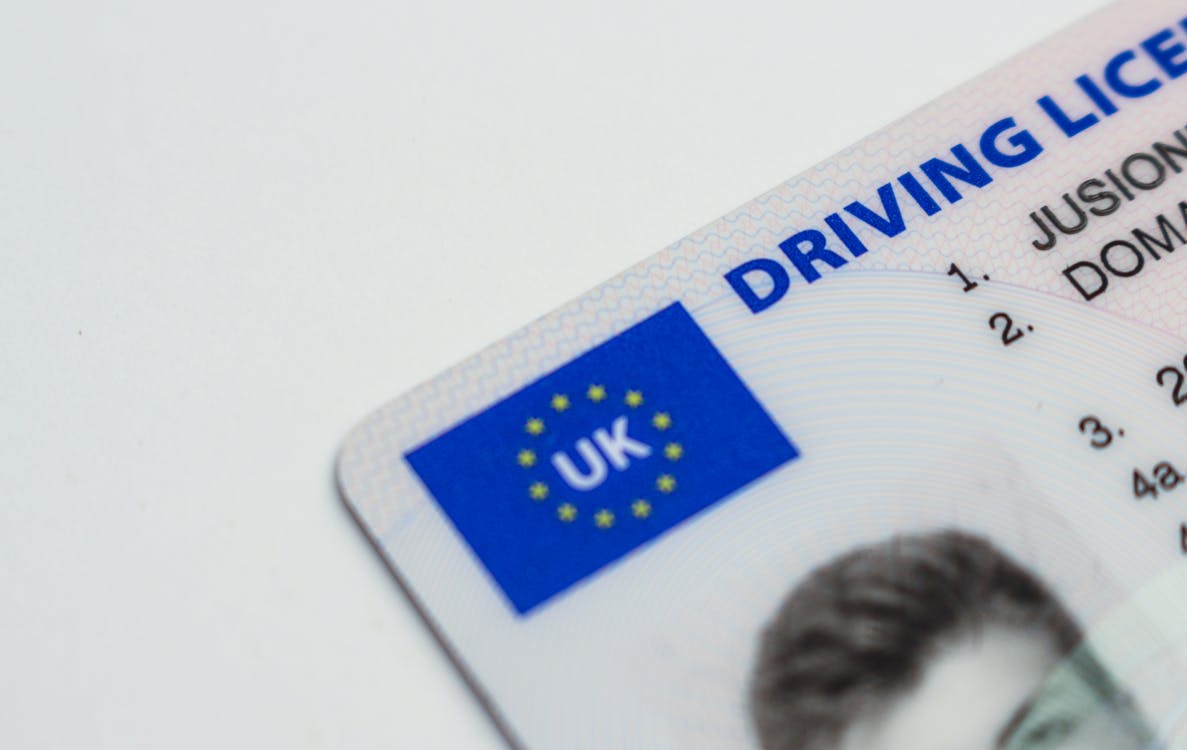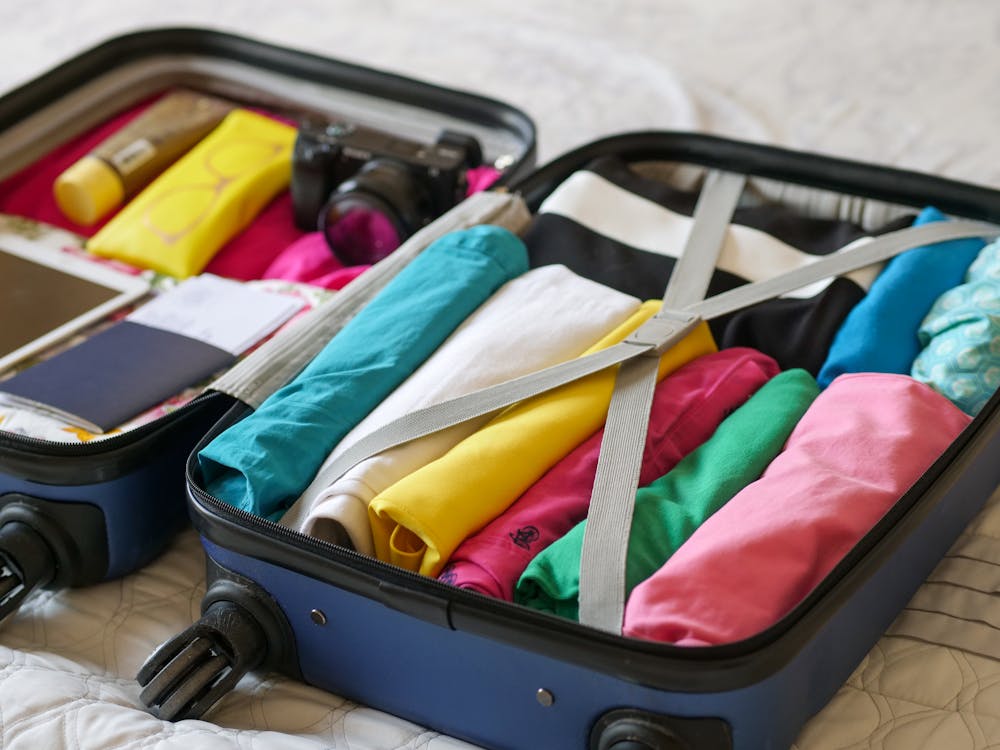Make Your Holiday Memorable! Here are 5 Things you Need to Do Before Visiting Bali in 2024

Illustration of Holiday in Bali, photo by Helena Lopes on Pexels
Planning a trip to Bali in 2024? Before you go, there are five important things you need to do to make sure your holiday is perfect. From preparing your travel documents to knowing what to pack, we'll help you get ready for a fantastic trip to this beautiful island. Here's what you need to know to enjoy your Bali vacation to the fullest!
Prepare your Visa and an International Driving License

Illustration of Driving License, photo by Dom J on Pexels
Before heading to Bali, make sure your travel documents are in order. First, check the visa requirements for your nationality. Many visitors can get a visa on arrival, but it's wise to verify this information beforehand to avoid any surprises. You can apply for a visa online or through the Indonesian embassy in your country.
Alongside your visa, if you're considering driving in Bali, obtaining an International Driving License (IDL) is essential. This permit translates your national driving license into several languages and is recognized internationally. You should apply for an IDL in your home country before you travel. Having an IDL not only allows you to rent motorbikes or cars in Bali but also helps in avoiding potential legal complications with local authorities.
Remember, driving in Bali involves navigating through unique traffic patterns and adhering to local driving laws, so familiarize yourself with these aspects to ensure a safe driving experience during your vacation.
Check the Best Weather and Time Before Visiting Bali

Travel Planning, photo by Vlada Karpovich on Pexels
Before booking your trip to Bali, it's important to consider the best time to visit based on the weather. Bali experiences two main seasons: the dry season and the wet season. The dry season, running from April to September, offers sunny days and low humidity, making it ideal for outdoor activities such as beach outings, hiking, and exploring the island's cultural landmarks. This is also the peak tourist season, so expect larger crowds and higher prices.
On the other hand, the wet season from October to March is characterized by heavy, short rains typically in the afternoons, with the rest of the day remaining warm and humid. While this season sees fewer tourists, which can mean lower prices and less crowded attractions, the rains might restrict some activities, especially those outdoors. However, it's also a great time for those interested in experiencing Bali's lush landscapes and various ceremonies, as the island comes alive with greenery and local celebrations.
Checking the weather forecast closer to your travel date can also help you pack appropriately and plan your itinerary to maximize enjoyment, regardless of the season you choose to visit.
Pack and Travel Light, Wear Light Clothing!

Pack and Wear Proper Clothing in Bali, photo by Kindel Media on Pexels
When preparing for your trip to Bali, packing light and choosing the right clothing can greatly enhance your comfort and mobility. Given Bali's tropical climate, light clothing is essential. Opt for breathable fabrics like cotton or linen to keep cool in the heat. Include items such as t-shirts, shorts, light dresses, and comfortable sandals or flip-flops suitable for walking on the beach and exploring the towns.
In addition to everyday wear, remember to pack a good hat and sunglasses to protect yourself from the sun, and don't forget a sturdy sunscreen with high SPF. Evenings can sometimes get slightly cooler, especially if you're near the coast or in higher elevations like Ubud, so it's wise to bring a light jacket or a sweater.
Since you'll likely be near water, whether it's a beach or a pool, include a swimsuit in your luggage. Also, consider the cultural norms and the places you plan to visit. For instance, if you intend to visit temples, it's important to dress modestly. Pack a sarong or a long skirt and a shawl to cover your shoulders as a sign of respect.
Moreover, packing light is also advantageous because it makes traveling easier, especially if you plan to move around the island or visit nearby islands like Lombok or the Gili Islands. A lighter suitcase means less to manage during transport and more room for unique souvenirs from your travels. Consider using packing cubes or compression bags to save space and keep your items organized within your luggage.
Learn a Few Local Phrases and Wording

Illustration of People Making Conversation, photo by PNW Production on Pexels
Learning a few local phrases in Bahasa Indonesia, the official language of Bali, can greatly enrich your travel experience. Not only does it show respect for the local culture, but it also facilitates smoother interactions with residents, enhancing your overall trip. Start with basic greetings and commonly used expressions, such as:
- Hello: "Halo" (informal) or "Selamat pagi" (Good morning)
- Thank you: "Terima kasih"
- Yes/No: "Ya" / "Tidak"
- How much? "Berapa harga ini?"
- Excuse me/Sorry: "Permisi" / "Maaf"
- Nice to meet you: "Senang berkenalan dengan kamu"
Bahasa Indonesia is known for its straightforward phonetic pronunciation, making it relatively easy for English speakers to learn. Additionally, many Balinese people speak some English, especially in tourist areas, but they appreciate when visitors make an effort to use their language.
Besides the practical benefits, engaging in even simple conversations in Bahasa Indonesia can lead to more meaningful interactions with locals. It might also open up opportunities to learn more about the local lifestyle and traditions, as residents often warm up to tourists who show interest in their culture.
You can use language learning apps, pocket dictionaries, or even online tutorials to pick up these phrases before your trip. Alternatively, consider taking a short language course upon arriving in Bali, which can be a fun way to meet people and immerse yourself in the culture right from the start.
Prepare Some Cash

Rupiah - Indonesian Currency, photo by Ahsanjaya on Pexels
While preparing for your trip to Bali, it's important to ensure you have access to cash. Despite the increasing availability of card payment facilities, cash remains essential, especially in smaller towns, local markets, and for services like taxis and street food vendors.
Here are a few tips on managing your money in Bali:
- Currency Exchange: The local currency in Bali is the Indonesian Rupiah (IDR). It’s advisable to exchange some money into Rupiah before you travel, or immediately upon arrival at the airport or at a reputable currency exchange service in town. Rates in Bali can be very competitive, so shopping around for the best rate is a good idea.
- Amount to Carry: It's wise not to carry large amounts of cash at once for security reasons. Estimate what you might need for a few days and replenish as needed from safe and reputable ATMs, which are widely available in tourist centers.
- Smaller Denominations: Having smaller denominations is particularly useful for smaller purchases, tipping, and in areas where change might be limited. Break larger notes at bigger shops and keep a stash of smaller bills handy.
- Safety Precautions: Always be cautious with your cash. Use a money belt or a hidden pouch to keep your money safe from pickpockets, especially in crowded places. Also, it’s a good practice to leave some cash in a safe at your accommodation in case of emergencies.
- Backup Plan: Besides cash, it’s prudent to have a backup option such as a credit or debit card that you can use internationally. Inform your bank about your travel plans to avoid any security blocks on your cards when used abroad.
By preparing your cash efficiently and safely, you can avoid many common travel hitches, ensuring a smoother and more enjoyable experience in Bali.
A Bit of Conclusion
In summary, a bit of preparation before your trip to Bali can make a significant difference in your travel experience. From securing the right documents and choosing the best time to visit, to packing appropriately and familiarizing yourself with local phrases and currency, these steps ensure that your holiday is as stress-free and enjoyable as possible. Remember, the beauty of Bali isn't just in its landscapes and cultural sites, but also in the seamless experience you can create with just a little forethought. So, get ready, set your plans, and embark on a memorable adventure to one of the most captivating destinations in the world!
